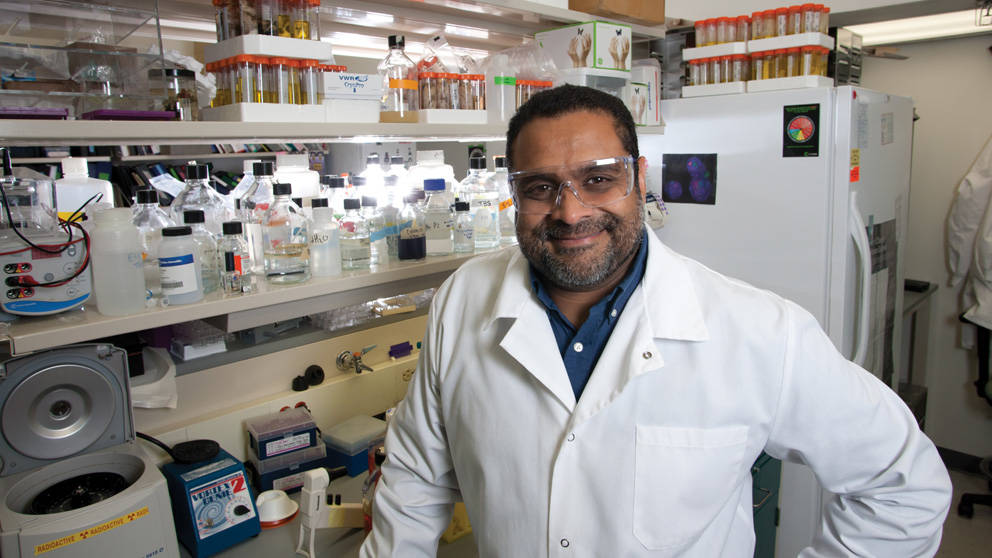
Q: How did you get interested in science?
A: I grew up in Tanzania, and in Africa most kids don't have toys, so I played with nature. I used to save food so that I could grow different fungi on it, and have "battles" to see which kind would win. My mom was so mad when she found out, wasting good food like that! But that sort of thing gave me a love of biology.
Q: Tanzania? When did you come to the U.S.?
A: I went to an International School, which is about equal to high school here, then applied to colleges and universities all over—Turkey, Czechoslovakia and of course the U.S. I got a full scholarship to Bowdoin College here in Maine, plus work/study jobs on campus. I put myself through school working, but I was very fortunate to have the opportunity.
Q: So was basic research your first interest?
A: I thought I would go to medical school, then go back to practice medicine in Tanzania. But I realized that it wasn't lack of doctors that was killing people there; it was the lack of good medicine that was killing people. The doctors were doing their best, but it wasn't good enough. They needed better therapies. So I went to Temple University School of Medicine in Philadelphia on a Ph.D. track.
Q: What do you do at JAX?
A: I finished my post-doctoral training with (Associate Professor) Kevin Mills, and I've stayed in his lab as an associate research scientist. I really like the research he's doing, and my work has two main objectives. First, I'm studying a specific type of DNA damage that occurs particularly in immune cells, which can lead to immunodeficiency or cancer. I also study how the damage that causes the immunodeficiency can be turned around and be used against cancer, as a tool to target cancer cells, but not healthy cells and further develop better therapies.
What I love about JAX is the camaraderie among principal investigators here, how easy it is to approach someone else and work together on a problem. You don't feel isolated in your lab. Of course, it's also the best place to use the best research platform there is to study human disease—the mouse—and gain a broad perspective on medical research.
Q: Do you like being in Maine?
A: I love Maine. I love the four seasons and being outdoors. I like being outside with my wife, who's from Maine, and my two children.
I enjoy being among mountains too. I used to be a mountain climber, and when I was 18 years old I climbed Mt. Kilimanjaro. I was strong as a bull! And it was amazing—the views from the mountain, the wildlife. I hope someday, given time and health, to continue my climbing. Climbing teaches you perseverance, which is a key component if one wants to remain sane doing research.
Bonus questions
Q: What kind of research did you do in graduate school?
A: I trained in virology. I did some work with HIV, and by the time I was working with it, it had become a tool we could use in research to help us study immunology. I needed to work with in vivo systems after I got my Ph.D. though, and JAX is the best place to do that, so it was a natural move to come here. Also, my wife is from Maine and wanted to come back from Philadelphia, so it was very appealing to us.
Q: How is the funding situation affecting your research?
A: We love the work we do—love it—and funding has been our biggest worry. So with the current situation, private funding will become more important. We'll also need events like Cookie's Ride to raise funds for research programs.
As a society and country, we absolutely need to support innovation and education. We need to keep our edge, or we'll become a secondary country in the science world.